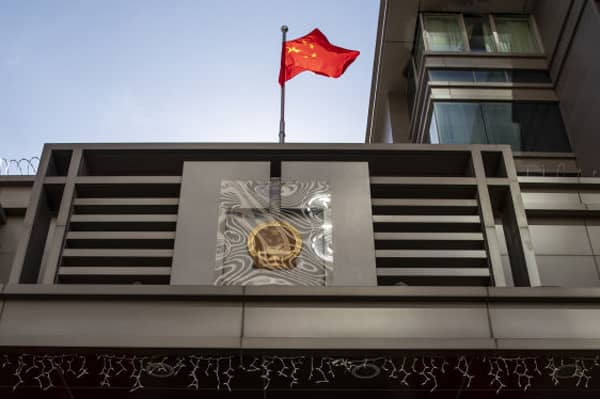
The State Department confirmed on Wednesday the U.S. has ordered China to close its consulate in Houston, prompting Beijing to insist on firm countermeasures unless Washington immediately reverses its decision.
The move is an escalation of political tensions between the world’s two largest economies.
State Department spokesperson Morgan Ortagus said the directive to close China’s consulate general Houston was made to protect American intellectual property and the private information of its citizens.
The Vienna Convention says diplomats must “respect the laws and regulations of the receiving State” and “have a duty not to interfere in the internal affairs of that State,” Ortagus continued.
She added that Washington would not tolerate the People’s Republic of China’s violations of U.S. sovereignty and intimidation of our people, just as we have not tolerated the PRC’s unfair trade practices, theft of American jobs, and other egregious behavior.
China condemned the decision, warning of firm countermeasures if the U.S. fails to urgently rescind the order.
“The unilateral closure of China’s consulate general in Houston within a short period of time is an unprecedented escalation of its recent actions against China,” Foreign Ministry spokesperson Wang Wenbin said at a daily news briefing, The Associated Press reported.
Washington has given China three days to close the consulate in the fourth largest U.S. city, China’s Foreign Ministry spokesperson said.
Alongside the embassy in Beijing, the U.S. has five consulates in mainland China, according to its website, in Chengdu, Guangzhou, Shanghai, Shenyang and Wuhan, where the coronavirus pandemic started. A possible closure of the Wuhan consulate could complicate efforts to share information about the virus.
Reports of a fire
KPRC, an NBC News affiliate in Houston, obtained video footage on Tuesday from a resident near China’s consulate that appeared to show a small fire burning in the courtyard of the building.
Houston assistant fire chief Ruy Lozano confirmed to NBC that the department responded to a fire in a courtyard at 3400 Montrose Boulevard at the Chinese Consulate at 8:20 p.m. local time on Tuesday. Crews that arrived reported no visible flames or smoke, Lozano said.
Fire crews were denied access to the building because access to the property can only be obtained with consent, according to an international agreement.
Lozano said fire crews remained outside the structure of the building until it was confirmed that there was no fire threat to occupants and the surrounding community. He referred questions to the State Department regarding whether or not documents were being burned.
How did we get here?
Diplomatic relations between the U.S. and China have reached their lowest point in years since the outbreak of the coronavirus pandemic.
President Donald Trump has frequently criticized China for a lack of transparency about the virus, where the outbreak originated before spreading across the globe.
To date, more than 14.9 million people have contracted Covid-19, with 616,985 related deaths worldwide, according to data compiled by Johns Hopkins University.
On Tuesday, the Justice Department accused two Chinese nationals of stealing trade secrets and hacking into computer systems of firms working on the Covid-19 vaccine.
The 11-count indictment said Li Xiaoyu, 34, and Dong Jiazhi, 33, had conducted a global hacking campaign for more than a decade.
It follows a series of speeches from Trump administration officials sharply criticizing China’s use of espionage and cyberattacks to steal intellectual property from American businesses.
Earlier this month, FBI Director Christopher Wray suggested these tactics had amounted to “one of the largest transfers of wealth in human history.”
The U.S. has also sought to block shipments of semiconductors to Huawei Technologies from global chipmakers, as scrutiny on Chinese technology firms continues to intensify.
Secretary of State Mike Pompeo told Fox News on July 6 that Washington was “looking at” whether to ban TikTok and other Chinese social media apps.


